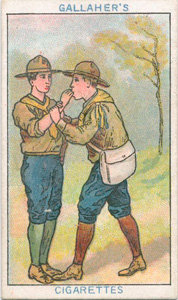“My Girlfriend Leaves The Atmosphere” is an example of a perfectly titled story—intriguing, yet doesn’t give away too much. Did this one come easily? How do titles work in your writing?
Titles tend to be one of two extremes for me: either they come really easily—sometimes before the story is even finished—or they’re the most difficult part of the whole process. This one was one of the easy ones. I think I’m a title perfectionist, I really want the perfect thing that makes some kind of statement about the piece and also sets a tone. So it’s great when something just seems right, and I obsess endlessly about it when that doesn’t happen.
How about the inspiration for this story—where did it come from?
I find myself childishly fascinated by the fact that regular, ordinary people have jobs like “astronaut,” the totally far-fetched things everyone wanted to be when they grew up. It’s strange to me to think of someone like an astronaut being a real person who goes out and dates and has a personal life. And I think because of the kind of foreign quality that concept holds for me, the more natural impulse is to write about it from this somewhat outside perspective instead of from the point-of-view of the astronaut. I think it was also to some degree a product of thinking about men and women, in particular some of the ways that even men who having nothing but the best of intentions still tend to be threatened by strong women, or women in traditionally male roles. I don’t see this story as making any kind of strong statement about such things, but just as exploring a dynamic that still does exist between men and women no matter how hard we’ve all tried to shake it.
“On dates, I strive for a careful balance. I try to seem interested in what she does, but not to the point of making her feel like a novelty item.” The character is fascinatingly and secretively introspective without seeming overbearing—a careful balanced is achieved in your writing also. How do you do that?
Thank you! I’m not entirely sure how to answer the question of how that balance is achieved except by saying that stories really only work for me when I find a narrator’s voice and that voice kind of takes over. I think, or at least I hope, that most of my narrators are flawed but still lovable, I think they almost always mean well. That’s the balance I strive for. I also tend to think that a part of the human condition is that we often live lives that look pretty normal on the outside, while in our introspective thoughts we’re neurotic and quirky and vulnerable and insecure about ourselves and our interactions with others more than what might be apparent. I often feel, as both a reader and a writer, that the real crux of a story lies in those internal spaces more than in the plot itself.
Where and when do you write and what is the oddest thing in your writing area?
I don’t really have a designated writing area, per se. I live in a small and crowded house with my husband, our daughter, my parents, and an assortment of pets. So my writing area tends to consist of my laptop and any small bit of space that is currently unoccupied. At the moment, I’m sharing a couch with an assortment of my philosophy textbooks, some stuffed animals, and a Disney Princess flashlight. I write primarily late at night, but I take my writing time like my writing space: in whatever small increment I can get. I think a big part of being a writing parent is learning not to be distracted by clutter or by Sponge Bob blaring in the background.
You sell robot supplies. I don’t know anyone who sells or buys robot supplies. What is that all about and how does this job relate or affect your writing life?
I volunteer in the Liberty Street Robot Supply and Repair, which is a front for 826michigan’s non-profit writing center for kids. For anyone unfamiliar with the 826 franchise, each location has a different kind of store: 826 Valencia has pirates, 826 NYC has superheroes, etc. Here in Michigan we have robots. We sell some “practical” robot building supplies, as well as lot of things like bottled robot tears and whistling femurs. All our proceeds support the free programming we offer. Mostly people walk in the door either knowing the premise, or curious what we’re all about and very enthused when they find out. But every once in a while we get people who take robotics very seriously and they seem kind of offended by the whole thing. Being involved with 826 is great, especially as it provides a way for creative writing to be an act of outreach and a way of engaging with a community when writing can so often be a kind of solitary endeavor. We’re not all writers there, but there’s an inherent creativity in the whole project. The robot store is a really playful thing that we have a lot of fun with and at the same time we take very seriously, and I think balancing those two is important for all creative endeavors. Also, some of our products make great writing prompts.



 The core workshop of SmokeLong Fitness is all in writing, so you can take part from anywhere at anytime. We are excited about creating a supportive, consistent and structured environment for flash writers to work on their craft in a community. We are thrilled and proud to say that our workshop participants have won, placed, or been listed in every major flash competition. Community works.
The core workshop of SmokeLong Fitness is all in writing, so you can take part from anywhere at anytime. We are excited about creating a supportive, consistent and structured environment for flash writers to work on their craft in a community. We are thrilled and proud to say that our workshop participants have won, placed, or been listed in every major flash competition. Community works.